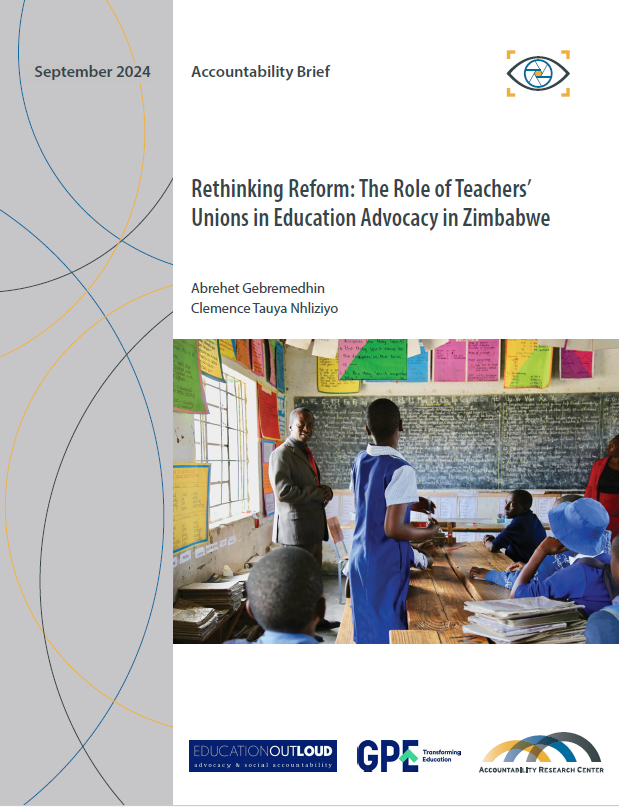
Rethinking Reform: The Role of Teachers' Unions in Education Advocacy in Zimbabwe
Date: October 2024
Author(s): Abrehet Gebremedhin and Clemence Tauya Nhliziyo
Publication type: ARC Accountability Brief
Published by: Accountability Research Center
Despite the fundamental role of teachers in implementing educational reforms, teachers’ unions are often kept out of policy discussions by both policymakers and international aid donors, or characterized as obstacles to change. This is the case in many developing countries, where reform and investment for quality public education are sorely needed. However, we simply do not know much about how teachers’ unions and other non-donor-funded civil society organizations (CSOs) work in Africa.
This Accountability Brief, based on a scholarly work in progress, presents a case study of the work of broad-based membership organizations—specifically, teachers’ unions in Zimbabwe—in navigating restricted civic spaces and building accountability by holding national government stakeholders to account for implementing promised education reforms.
The purpose of the brief is to better understand how teachers’ unions survive and whether they coordinate with donor-funded CSOs. It also unpacks certain assumptions held by some policymakers and international aid donors about their potential as allies in advocacy and policy reform.
This Accountability Brief offers the following key insights:
- Teachers’ unions vary significantly in their internal composition and therefore use differing tactics, despite largely similar goals.
- Teachers’ unions face different government responses in restricted civic spaces, ranging from tacit support to severe repression, based on their relationship with the government.
- The advocacy agendas of teachers’ unions often overlap with those of other CSOs in education policy spaces—specifically, advocating for increased access to quality, public education. In an example of an ‘insider-outsider’ approach, unions are able to join national education coalitions in order to advocate for shared advocacy agendas in policy spaces to which they would not typically be invited.
Teachers’ unions should not automatically be assumed to be resistant to all policy reform. Their relationship to reform is complex and variable, and depends on the proposed policy reform itself. More work needs to be done to learn about teachers’ unions in places like Africa and Asia, and how they are choosing to—or not to—work with CSOs that are seeking to enact reform for improved access to quality, public education.
